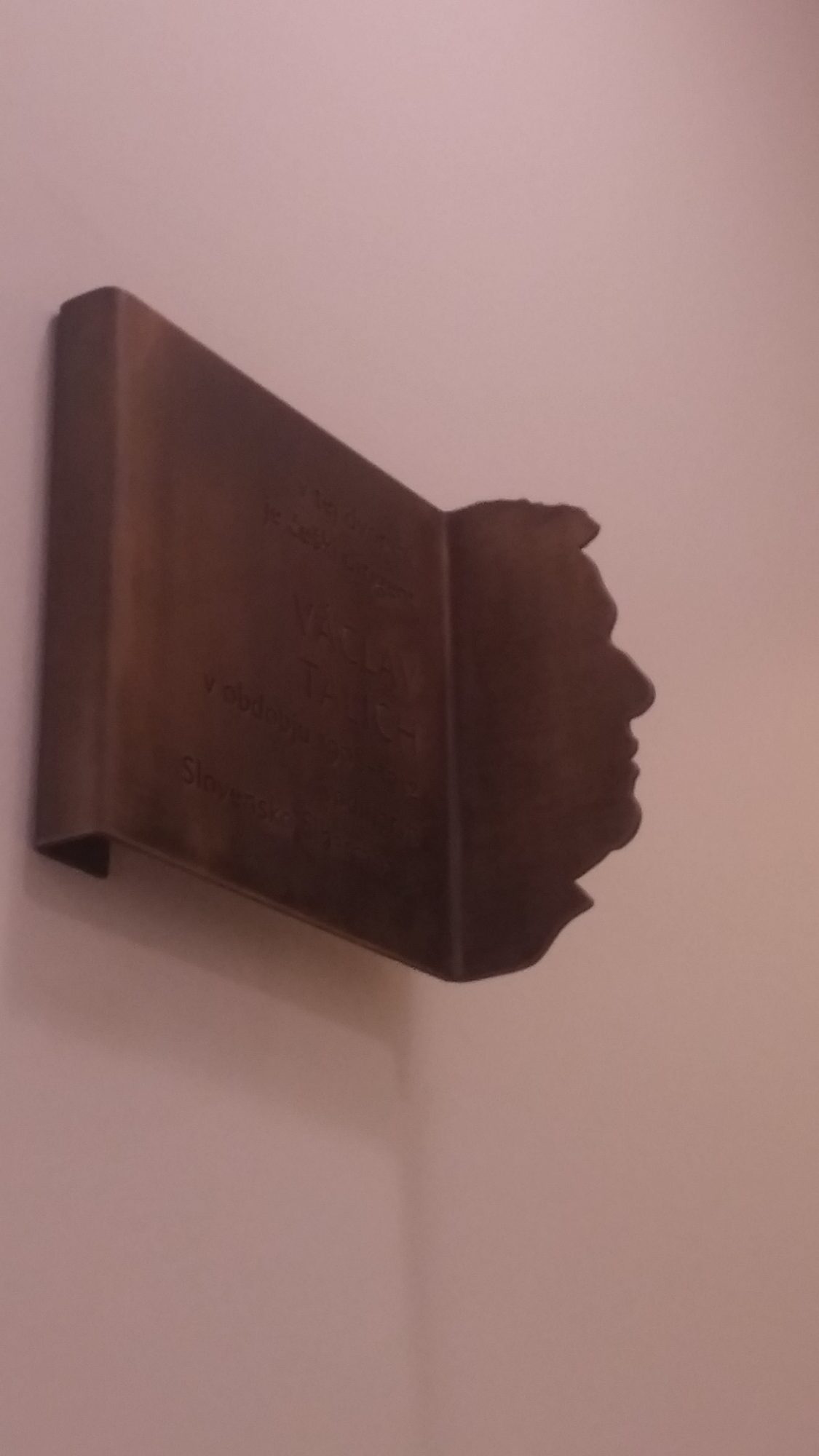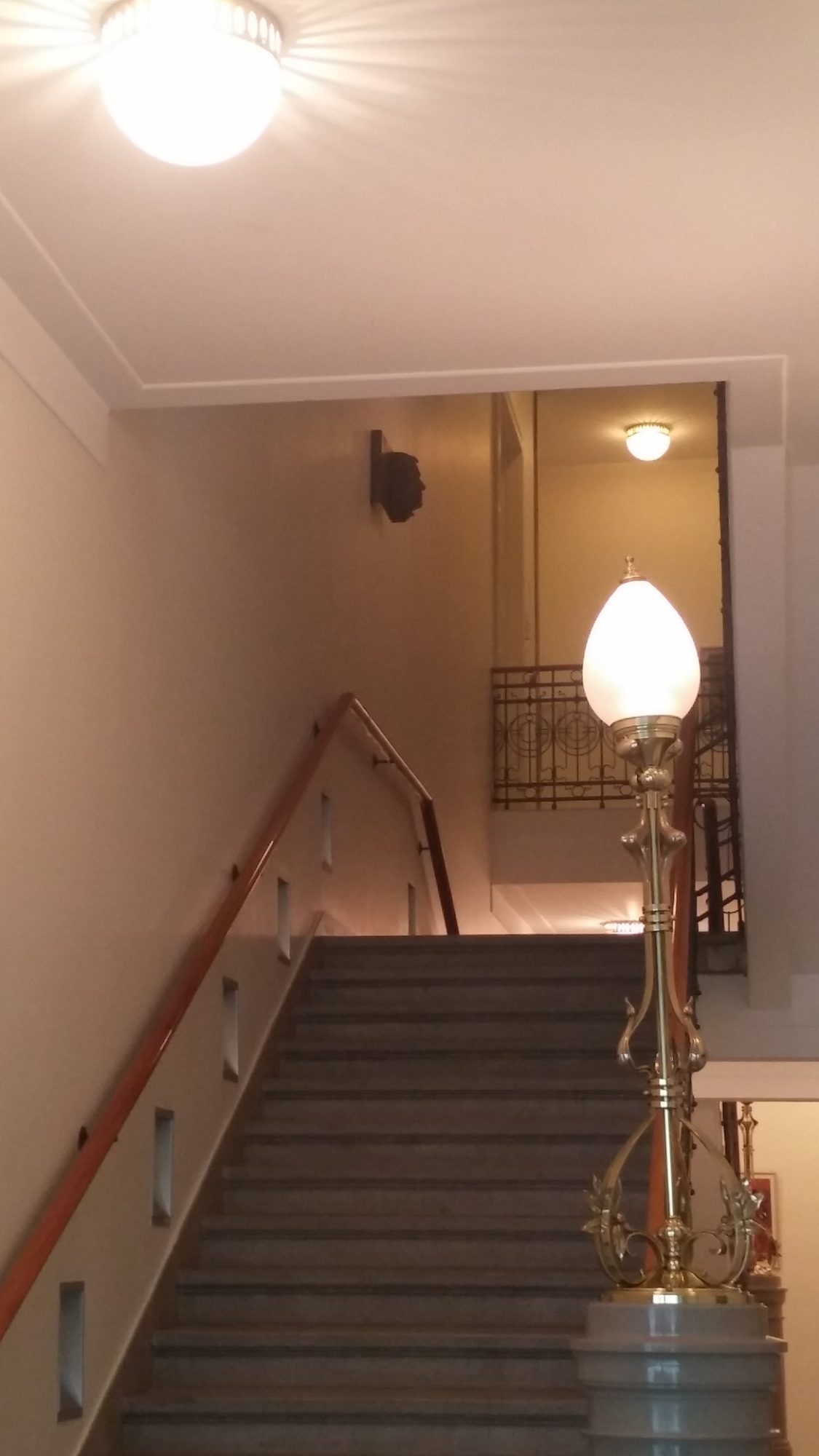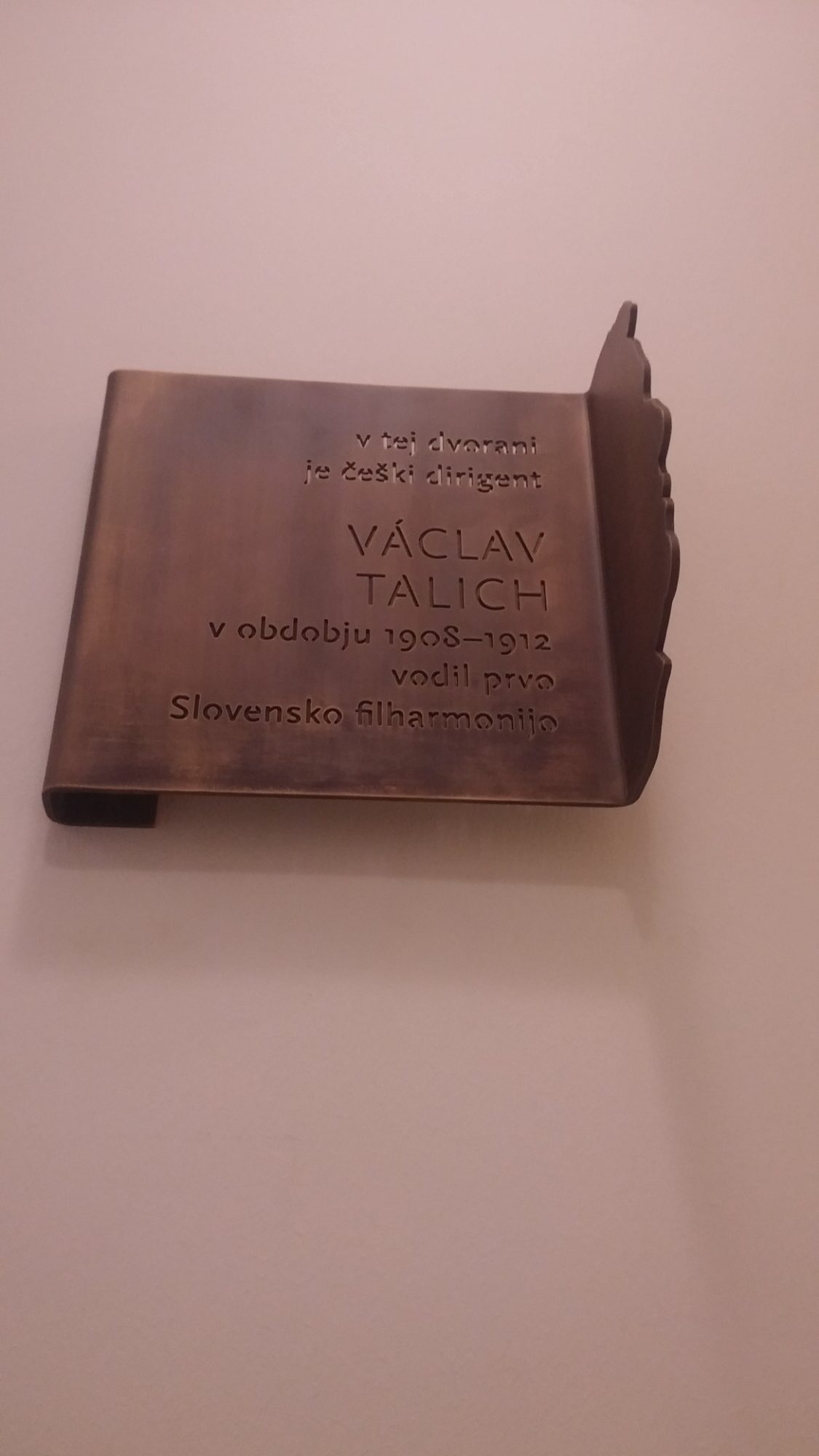A memorial plaque was installed in 2018 in memory of Czech maestro Václav Talich, a preeminent conductor important for developing Slovenia’s music life and promoting Slovenian music. It was unveiled during the 33rd Slovenian Music Days’ closing ceremony. Designed by Robert Žvokelj and made by sculptor Metod Frlic, the commemorative plaque was attached next to the staircase leading to Union Hall, where Talich conducted symphony concerts of the first Slovenian Philharmonic. The inscription reads:
“Between 1908 and 1912 Czech conductor Václav Talich conducted the first Slovenian Philharmonic in this hall.”
Václav Talich
Václav Talich (1883–1961) was a preeminent Czech musician who pursued an international artistic career. He achieved distinction primarily as a conductor and violinist. Acting as the main catalyst of Slovenia’s symphonic concert life, although for a brief spell, his work as a conductor was highly influential in shaping the Slovenian musical landscape. During his Ljubljana tenure, Talich was instrumental in structuring the artistic mould of the first Slovenian professional orchestra.
He was born in the Moravian town of Kromĕříž. Young Václav was initiated into the world of music by his father Jan, a music teacher and composer, who encouraged his first forays into music. At the young age of four, Talich played in a school orchestra and performed as a solo violinist. He studied violin at the Prague Conservatory under Otakar Ševčík between 1897 and 1903. After graduation, he joined the Berlin Philharmonic Orchestra under its principal conductor, Arthur Nikisch, assuming the post of leader in the 1903/04 season. Nikisch, a cosmopolitan artistic figure, made such a profound impression on him that he decided to seek a career as a conductor and study under Nikisch in Leipzig.
Due to declining health (a pulmonary disease), Talich was forced to move to Odessa in 1904, joining the Odessa Opera as leader of the orchestra and conductor. He soon moved to a warmer climate, Tbilisi, to become professor of violin, a conductor and member of a string quartet. The effects of the 1905 Russian Revolution reached Georgia in 1906, compelling Talich to return home.
He was then active in several musical roles in Prague, working as a rehearsal coach in the M. Langrova singing school and conducting an orchestra society, yet these roles afforded no real opportunities for advancing his artistic career. He decided to take a conducting post in Ljubljana, taking the local Society Orchestra to great heights with a concert rendition of excerpts from Wagner’s Lohengrin and Verdi’s Aida. It was during this period, in 1908, that the Society Orchestra was renamed and transformed into a professional symphony orchestra, the Slovenian Philharmonic. Appointed its first conductor, Talich attracted critical attention with their first concerts, garnering praise from critics, who recognised his artistic merit and outstanding musicality, a talent that helped Talich to raise his music ensembles to the highest artistic levels.
In programming the Slovenian orchestra’s repertoire, Talich focused primarily on works by Slavic and Slovenian composers and the standard classical repertoire. Towards the end of the 1908/09 season, he formed a string quartet, with which he performed classical masterpieces by composers such as Mozart and Dvořák. In the 1909/10 season, Talich conducted operetta performances at the Ljubljana Provincial Theatre, and temporarily served as conductor of the Glasbena matica Music Society Choir.
Appointed the first conductor of the Slovenian Provincial Theatre in 1911, he distinguished himself as a meticulous and professional opera conductor. He painstakingly applied himself to devising opera repertoires, and channelled his enthusiasm into elevating Slovenian operatic standards, as well as engaging new opera singers. He went down in the history of Slovenian music with his notable renditions of Verdi’s Rigoletto, Smetana’s The Bartered Bride and Dvořák’s Rusalka. He was also highly dedicated to promoting Czech music and composers, primarily Leoš Janáček.
Alongside Fritz Reiner and Gustav Mahler, Talich is among the roster of great conductors who embarked on internationally renowned careers in Ljubljana. Talich went on to hone his conducting skills in Germany, and returned for a season to Ljubljana. There followed engagements in the Czech Republic, Slovakia and Germany, where his performances of Dvořák, Smetana and Suk are remembered as authentic interpretations.
Maia Juvanc



